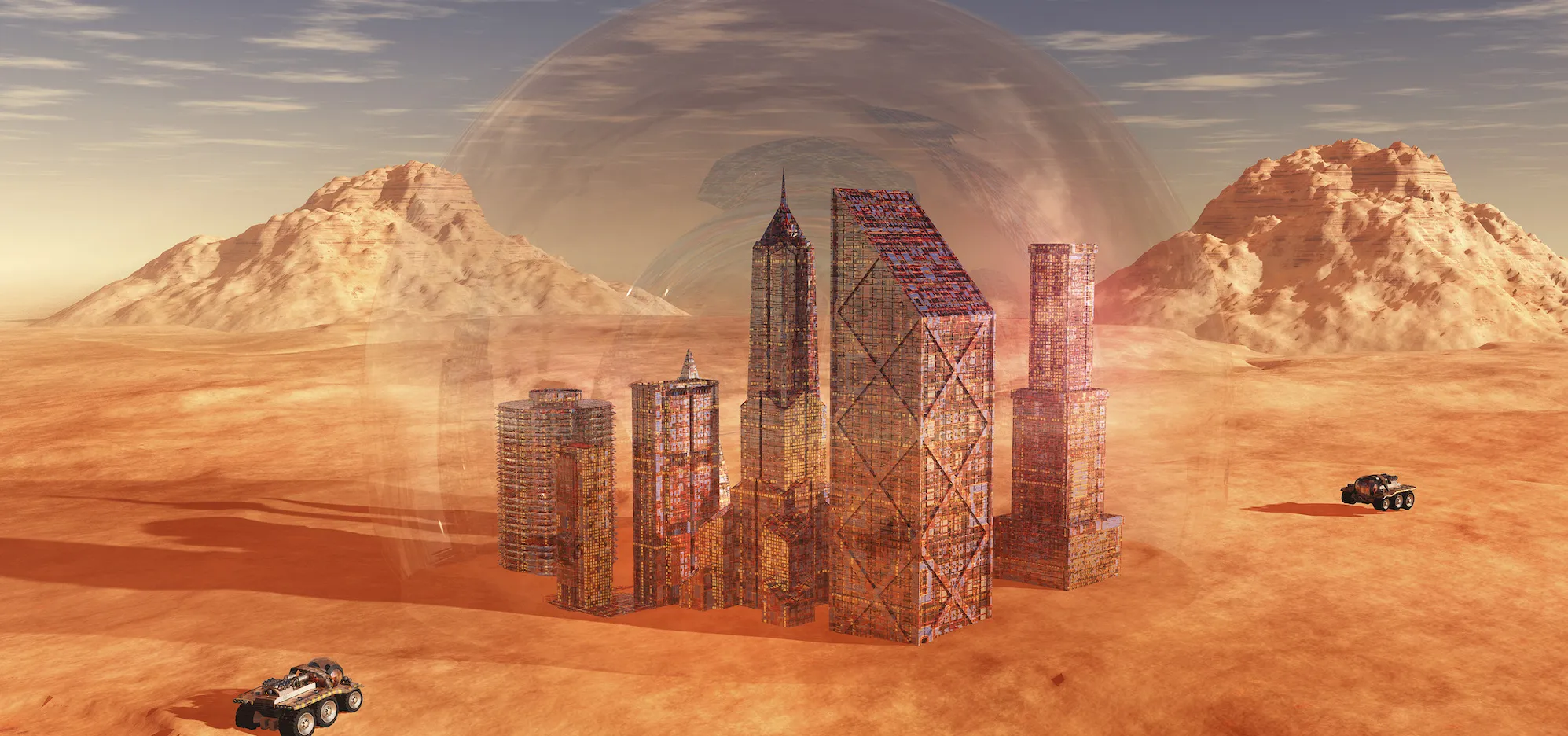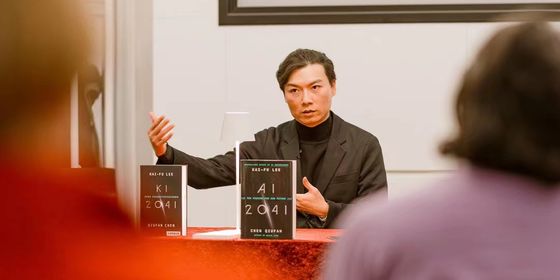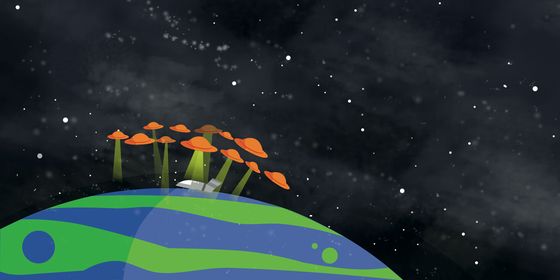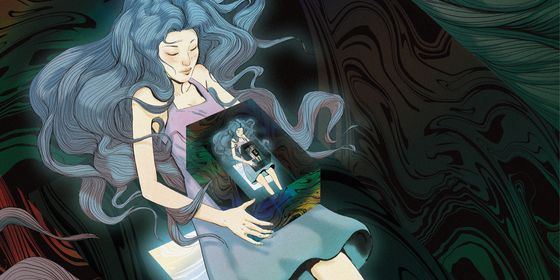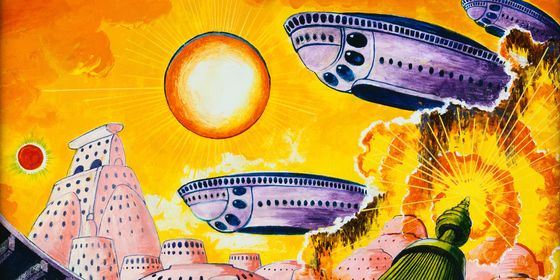As China's Mars mission sends images and data back to Earth, we look at Chinese sci-fi stories inspired by the Red Planet
Long before China’s National Space Administration landed its Tianwen-1 space mission on Mars in May this year, the Red Planet occupied a space in the Chinese literary imagination—even in ancient times.
While Western audiences may be familiar with classics like Stanley G. Weinbaum’s short story “A Martian Odyssey” and Ray Bradbury’s The Martian Chronicles, China’s much shorter history of science fiction writing has nevertheless produced a considerable amount of engrossing tales centered on the fourth planet from the Sun.
One of the earliest depictions of Mars in Chinese literature is found in Cat Country, written in 1933 by Lao She (老舍), one of China’s most significant literary figures of the 20th century. The novel follows Mr. Earth, an explorer who crash lands on Mars and finds the planet inhabited by a race of selfish, ignorant and xenophobic cat people. The book describes the cat people’s society as corrupt and chaotic, and is Lao She’s scathing social critique of China in the 1930s.
The first work of science fiction in the PRC didn't appear until 1954—and it was also inspired by Mars. This was the short story “From Earth to Mars” by Zheng Wenguang (郑文光), first published in Chinese Teenagers News magazine. Zheng was a Vietnamese Chinese astronomer who worked for the Chinese Academy of Sciences, and was widely regarded as the “father of Chinese science fiction.” The plot of his story is simple: Three young teens steal a spaceship to visit Mars, before adults catch up and convince them that it’s too dangerous to land on the planet. The teens orbit around Mars to get a closer look, before heading back to Earth.
Zheng’s detailed depiction of interplanetary travel—which included passages on movement in zero gravity, the appearance of the Sun and Earth in space, and the dangerous maneuvers of the young crew through an asteroid belt—proved a massive hit even among adult readers. The story galvanized the public’s interest in astronomy, and Mars in particular. In Beijing, tourists lined up at the gate of the Ming era (1368 – 1644) Ancient Observatory just to get a glimpse of the Red Planet through a modern telescope.
Encouraged by the enthusiasm, Zheng wrote another short story called “Builders of Mars,” this time with a more serious tone. Published in China Youth magazine in 1957, the story is set in the year 2000, with the colonization of Mars in full swing. On a brief vacation back on Earth, a Mars pioneer shares his tales of triumph and tragedy building the early Martian settlements with a retired astronomer who had inspired the younger man's Martian dream as a child.
Zheng’s Martian world is a wild land that requires taming and development. It suffers from extreme weather, deadly cosmic radiation, and plagues caused by microbial infections. The pioneer narrates how he lost his wife and unborn child on Mars, but never gave up his dreams of putting down roots in the red soil.
This memoir of the blood, sweat, and sacrifice of early Martian settlers evoked China’s socialist reforms and the beginning of its rapid industrialization in the 1950s, not least suggested by the depictions of the magnificent Martian harvest. One might find echoes with over-ambitious local governments report during the Great Leap Forward in the pioneer's descriptions of “a single strand of wheat weighing five kilograms,” “a pig as heavy as a tank,” and “a pigeon as big as an eagle.”
“Builders of Mars” won the Sci-fi Award at the World Festival of Youth and Students held in Moscow in the same year it was published. Before Liu Cixin came along, Zheng was the only Chinese writer to claim an international sci-fi award.
In more recent decades, generations of writers have brought diverse new perspectives to Chinese sci-fi literature. China’s space missions—like the Chang-e 4 probe to the dark side of the moon, the development of a Chinese space station, and the Tianwen-1 mission to Mars—have further captured the public’s imagination, giving Martian tales a wider audience.





